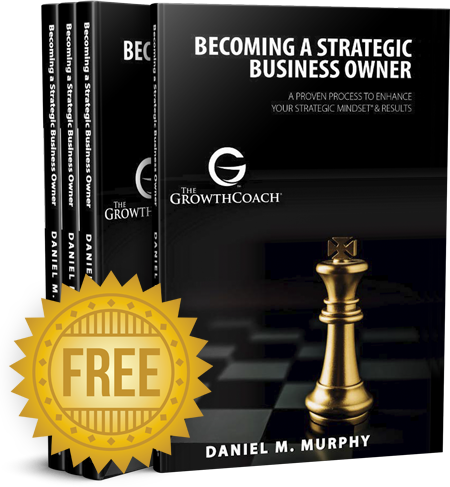The topic of business planning is critical for your success and sanity. As important as the final plan you generate is the thinking process you must go through to create each of these plans. It is imperative for you to periodically slow down, think, and write down your plans in order to achieve clarity of direction and develop a road map to provide on-going guidance and accountability to help you reach your destination, dreams and goals.
For today’s Growth Coach blog, we are fortunate to have Glenn Smith as a guest blogger. Glenn Smith is a Growth Coach franchise owner from the Houston/Sugar Land Texas area and is a highly regarded business coach, prolific blogger, and an accomplished marketer, especially with regards to social media.
You can learn more about Glenn, his credentials and his coaching services at www.TheGrowthCoachHouston.com.
By Glenn Smith … “3 Types of Business Plans”
Wise business owners know that there is great value in planning. As a result, they take the time and energy to create and maintain a business plan. However, it is helpful to realize that there are at least 3 different types of business plans. Each plan serves a different purpose. Here they are.
A Start-Up or Refocusing Plan
This is a detailed plan that helps you think deeply about your business and where you see it going long term. This is the plan that most people are familiar with. This plan typically takes days and often weeks to develop. It requires much research and analysis, and may be relevant for up to 5 years. It is the type of plan I recommend for people who are just starting a business or whose business is at a major transition or refocusing time. I am not going to go into detail about this business plan but here are the major sections that should be included:
- Executive Summary
- Business Overview/Company Summary
- Products and Services
- Market Analysis
- Marketing Strategy and Implementation
- Management Summary
- Financial Plan
- Overall Summary
- Supporting Documents
In this Start-Up or Refocusing Plan there will be much research and thought behind each of these 9 sections, with much detail written down. As a result, this plan can include dozens of pages.
As mentioned, when most established business owners think of a “Business Plan” this is what they have in mind. As a result, most feel overwhelmed and paralyzed, concluding that their time is best spent just getting the work done. While I believe that this type of analysis and detail is critical in a start-up or major transition, I do not suggest that business owners try to tackle this much detail every year. I recommend an Annual Growth Plan instead.
Annual Growth Plan
An Annual Growth Plan has 3 key components:
- A Financial Plan – which is a budget projected out by month for the next 12 months. You will want to project your income and your expenses for each month. As you proceed through your year you will evaluate each month’s actual results to its budget/projected amounts. By doing this you can make adjustments as necessary throughout the year.
- A Marketing Plan – which is what drives your Financial Plan. There are at least 5 components to a good marketing plan: Description of your Ideal Customer, Your U.S.P. (Unique Selling Proposition), Your Marketing Mediums, Your Marketing Budget, and Your Marketing Calendar.
- An Operations Plan – which takes into account the 7 basic processes in every business (marketing, selling, operations/customer fulfillment, customer service, management/systems, administration, and leadership/vision). Goals are then set to improve each of the 7 processes.
This Annual Growth Plan is no more than 3 pages (one page for each section) and can be completed through our guided coaching process in just a few hours. This should be completed every year, and then performance should be tracked against the plan. Again, this provides you with clarity of direction and on-going guidance and accountability.
Scenario Planning
Scenario Planning is a technique that is used when a company is in a rapidly changing or an unpredictable industry or environment. I guide business owners through a process centered around the “critical drivers” (those 2 or 3 things that will determine the future) and probabilities. Using this technique business leaders are able to create the 3-5 most-likely scenarios of the future, and then map out a tentative plan of action for each scenario. This is not exhaustive but it gives the business owner an immediate starting point and plan of action if/when the scenario takes place. I have found this approach very helpful in the past couple of years working with people in the health insurance and health care fields.
This is still a good time to put your Annual Growth Plan in place for 2011. If you need some help or encouragement, consider engaging a business coach. You will be glad you did.
Thanks Glenn for your advice and business-planning guidance.

